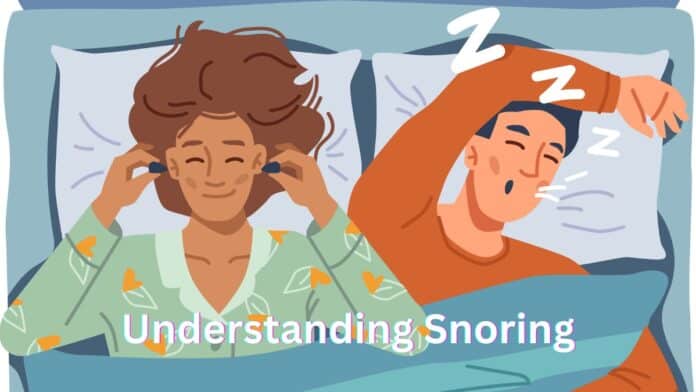Are you troubled by the persistent sound of snorting and grumbling during your sleep? Not only can it disrupt your rest, but it may also strain your relationship with your partner. However, you may be wondering if this common issue points to a more serious underlying health condition. We aim to provide you with valuable insights and practical advice that will help you understanding snoring better and take appropriate action. Let’s begin!
Understanding Snoring: What is it?
Snoring is a common phenomenon that occurs during sleep when the flow of air through the mouth and nose is partially obstructed. It results in the vibration of respiratory structures, leading to the characteristic sound of snoring. While many people experience occasional snoring, for some, it can be a chronic issue that affects their quality of sleep and overall well-being.
What are the Causes of Snoring?
Here are some common factors that contribute to snoring:
- Nasal Congestion: When your nasal passages are blocked or congested, it becomes harder for air to flow through, which can lead to an increased chance of snoring.
- Age and Genetics: As we get older, the muscles in our throat have a tendency to weaken, which can increase the likelihood of snoring. Furthermore, genetic factors can play a role in causing structural abnormalities that contribute to snoring.
- Obesity: Having excess weight can result in the buildup of fatty tissues in the throat, which can narrow the airway and lead to snoring.
- Alcohol and Sedatives: Drinking alcohol or taking sedatives relaxes the muscles in the throat, which increases the intensity of vibrations and leads to snoring.
- Sleeping Position: Sleeping on your back can cause the tongue and soft palate to collapse towards the back of the throat, blocking the air passage and triggering snoring.
Impact of Snoring
Snoring can have a detrimental effect on the quality of your sleep. The constant noise can disturb your slumber, leading to restless nights and daytime drowsiness. Additionally, it can create tension in your relationship with your significant other, as they might struggle to sleep through the night due to the noise.
Research suggests that chronic snoring may be linked to various health issues. Conditions such as sleep apnea, which causes interrupted breathing during sleep, have been associated with snoring.
Effective Solutions for Snoring
There are several steps you can take to address snoring and enhance the quality of your sleep.
- Lifestyle Changes: Making specific lifestyle adjustments can significantly reduce snoring. These include maintaining a healthy weight, refraining from consuming alcohol and sedatives before bedtime, and establishing a consistent sleep schedule.
- Oral Appliances: Dental devices, such as mandibular advancement devices (MADs), can help reposition the jaw and tongue, effectively preventing the airway from collapsing during sleep. This can be an effective way to mitigate snoring.
- Nasal Dilators: Nasal dilators are devices that aid in widening the nasal passages, facilitating improved airflow and reducing snoring. They can be worn externally or inserted into the nostrils to promote better breathing during sleep.
- Surgery: In certain cases, surgical intervention may be required to address anatomical abnormalities that contribute to snoring. It is crucial to consult with a specialist to determine the most appropriate surgical options for your specific situation.
Conclusion:
Snoring is a widespread condition that can disrupt sleep, strain relationships, and indicate underlying health concerns. By comprehending the causes, risks, and effective solutions for snoring, you can proactively take steps towards achieving a better night’s sleep and enhancing your overall well-being.
FAQs
Is snoring harmful?
While snoring is generally not harmful itself, it can be a symptom of an underlying health issue such as sleep apnea. Sleep apnea is a condition where breathing repeatedly stops and starts during sleep, which can have negative effects on overall health if left untreated.
When should I see a doctor about my snoring?
If your snoring is accompanied by other symptoms such as excessive daytime sleepiness, choking or gasping during sleep, or pauses in breathing, it is advisable to consult a doctor.
Are there any home remedies for snoring?
There are several home remedies you can try to alleviate snoring. These include elevating your head while sleeping, practicing good sleep hygiene, using nasal irrigation to clear nasal passages, avoiding allergens and irritants, and trying throat exercises or singing exercises to strengthen the muscles in the throat.

